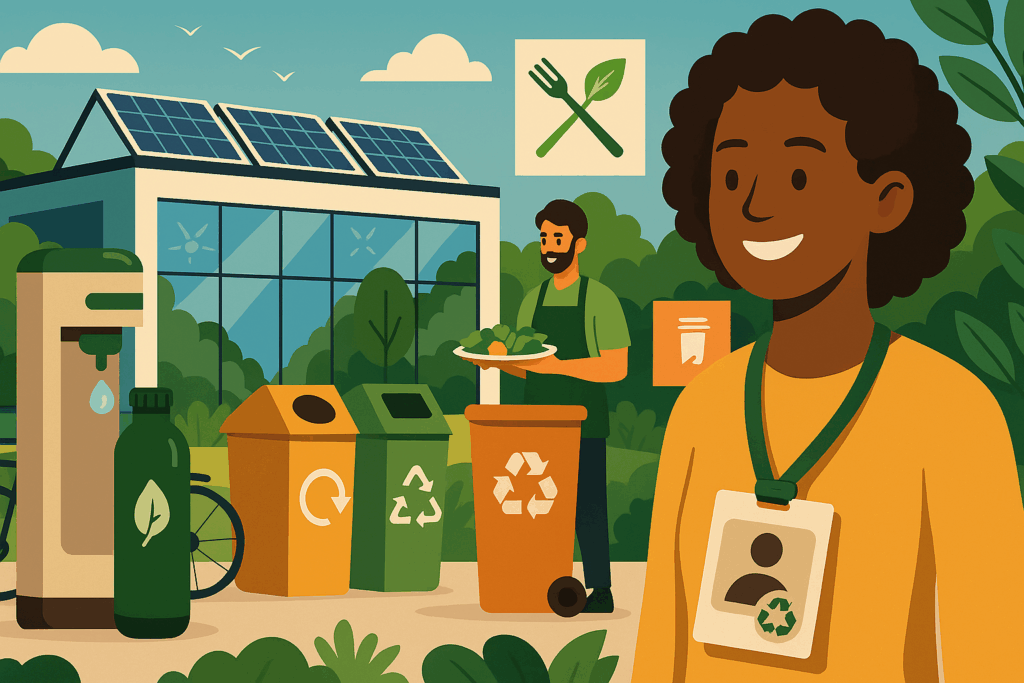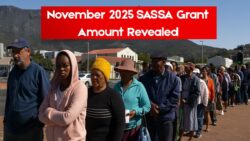Low-Carbon Catering: Seasonal, Plant-Forward, Locally Sourced
Food is one of the biggest levers for event emissions. GCET25 partners with local kitchens and farms to prioritise seasonal, plant-forward menus featuring pulses, grains, and fresh produce. Where animal protein is offered, portions are right-sized and responsibly sourced. Coffee and tea stations use reusable cups or deposit-return mugs, while filtered water replaces single-use bottles.

On the Menu
- Plant-led mains: Hearty bowls, salads, and warm dishes with regional ingredients.
- Low-impact proteins: Line-caught or certified options served in smaller portions.
- Food-waste cuts: Smart buffet sizing, surplus tracking, and end-of-day donations.
Zero-Waste Badges: Reuse First, Recycle Second
Traditional name badges are a hidden waste stream. At GCET25, badges are reusable with durable holders and recyclable paper inserts. Lanyards are fabric, unbranded, and collected in return bins for cleaning and re-use at future events. This simple change eliminates thousands of plastic sleeves and clips.
Materials & Collection
- Paper inserts: FSC-certified, soy-ink printed, and easily recycled.
- Lanyard return: Clearly marked drop points at exits and help desks.
- Spare stock: Kept minimal to avoid over-ordering and storage waste.
Beyond Food & Badges: A Whole-Event Approach
GCET25 complements its core actions with venue energy efficiency, digital programmes, and right-sized swag. Exhibitors receive guidance on plastic-free booths, modular stands, and take-back schemes. For travel, delegates are nudged toward public transport, walking, and ride-sharing, with schedules and route maps in the event app.
Measure, Report, Improve
- Carbon accounting: Catering, energy, and waste data contribute to a post-event footprint.
- Supplier criteria: Preference for local vendors with verifiable sustainability practices.
- Continuous learning: A short post-event report shares results and next steps.
How Delegates Can Help
Bring a refillable bottle, return your lanyard, and choose plant-forward meal options. Small actions at scale make big differences. With low-carbon catering and zero-waste badges as anchors, the GCET25 Sustainability Plan shows how climate-smart events can be practical, replicable, and memorable.




